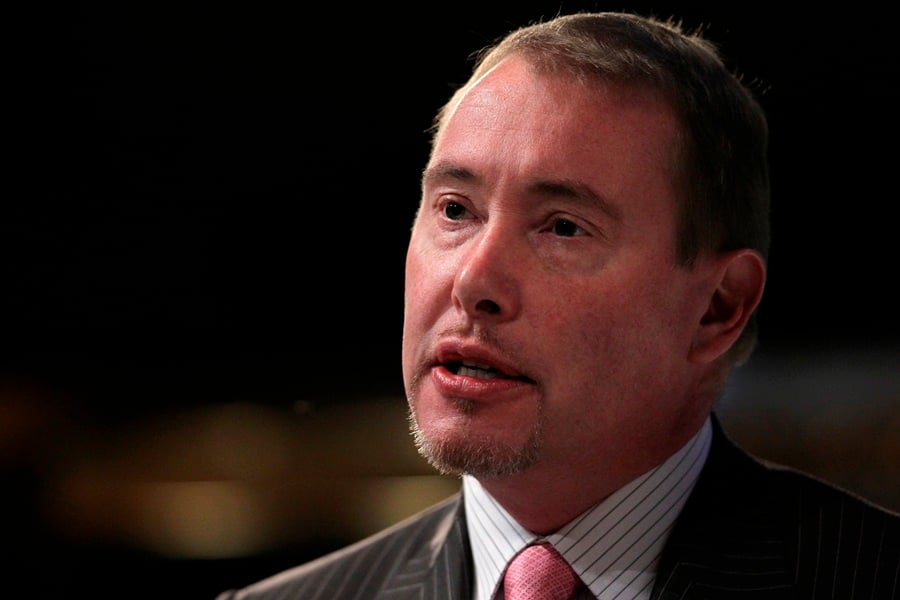

Default rates on high-yield bonds may double as companies struggle with a protracted economic downturn even as the Federal Reserve props up valuations, said Jeffrey Gundlach.
The investment-grade corporate debt market has skewed toward lower quality BBB-rated debt, but if just 50% of that were to be downgraded, it could fuel a near doubling of the high-yield market, Gundlach said Tuesday on a webcast for his firm’s flagship DoubleLine Total Return Bond Fund.
Gundlach’s views reflect broad skepticism about the market’s connection to economic realities. He criticized the Fed’s emergency actions as buoying asset prices and spurring unsustainable corporate borrowing binges.
Risk assets such as equities and high-yield credit markets are responding to this support, and to government stimulus, disproportionately as the COVID-19 pandemic remains a threat to the recovery, he said.
“It’s foolhardy to believe that one can have this kind of a shock to an economy and it just gets healed through a one-shot deal” from the Treasury, he said.
Gundlach pointed out that the global GDP forecast is -3.9%, whereas the U.S. lags at -5% despite the country’s response to the COVID-19 crisis being “one of the highest in the world.”
Highlighting the effect of the weekly $600 stimulus checks, he called it a distortion of the personal-income spending picture akin to the Fed’s effect on the markets.
“This is a large incentive to stay on public assistance,” Gundlach said, noting that benefit payments have exceeded many workers’ regular income.
Gundlach also snubbed one of the market’s favorite trades on a U.S. recovery, saying he’s “betting against” the inflation-linked bond market. TIPS products have seen some of the strongest monthly inflows in four years, and market-implied expectations for inflation have touched a 2020 high. Gundlach repeated that the impact of the pandemic is deflationary.
Commenting on the recent sell-off, Gundlach compared the big tech players within the S&P 500 index to generals on the battlefield, saying their leadership is starting to trail.
“One week ago today, it seemed like stocks were going to infinity,” Gundlach said.
The S&P 500 is in “nosebleed territory. This is not a cheap market,” he added.
Other highlights from the webcast:
Gundlach manages the $52 billion Total Return fund with Andrew Hsu and Ken Shinoda. Its year-to-date return of 3.4% through last Friday ranked better than 47% of its peers, according to data compiled by Bloomberg. Its five-year average of 3.4% beat 75% of competitors.
[More: Gundlach predicts Trump will win]

Canadian stocks are on a roll in 2025 as the country prepares to name a new Prime Minister.

Two C-level leaders reveal the new time-saving tools they've implemented and what advisors are doing with their newly freed-up hours.

The RIA led by Merrill Lynch veteran John Thiel is helping its advisors take part in the growing trend toward fee-based annuities.

Driven by robust transaction activity amid market turbulence and increased focus on billion-dollar plus targets, Echelon Partners expects another all-time high in 2025.

The looming threat of federal funding cuts to state and local governments has lawmakers weighing a levy that was phased out in 1981.
RIAs face rising regulatory pressure in 2025. Forward-looking firms are responding with embedded technology, not more paperwork.
As inheritances are set to reshape client portfolios and next-gen heirs demand digital-first experiences, firms are retooling their wealth tech stacks and succession models in real time.
